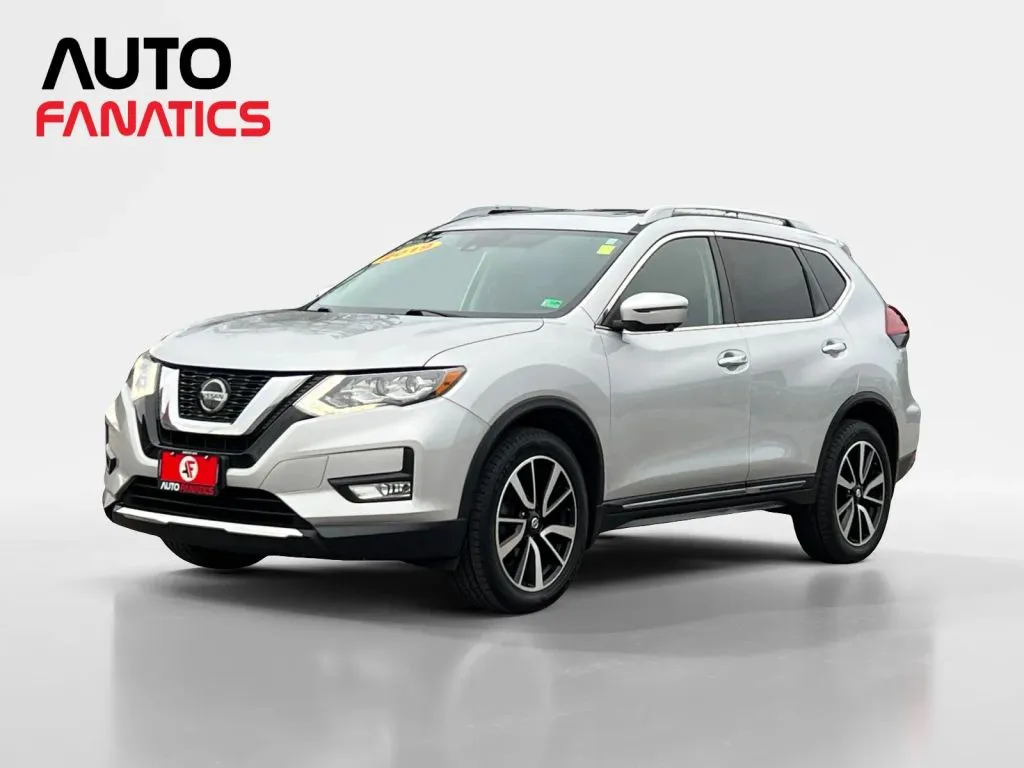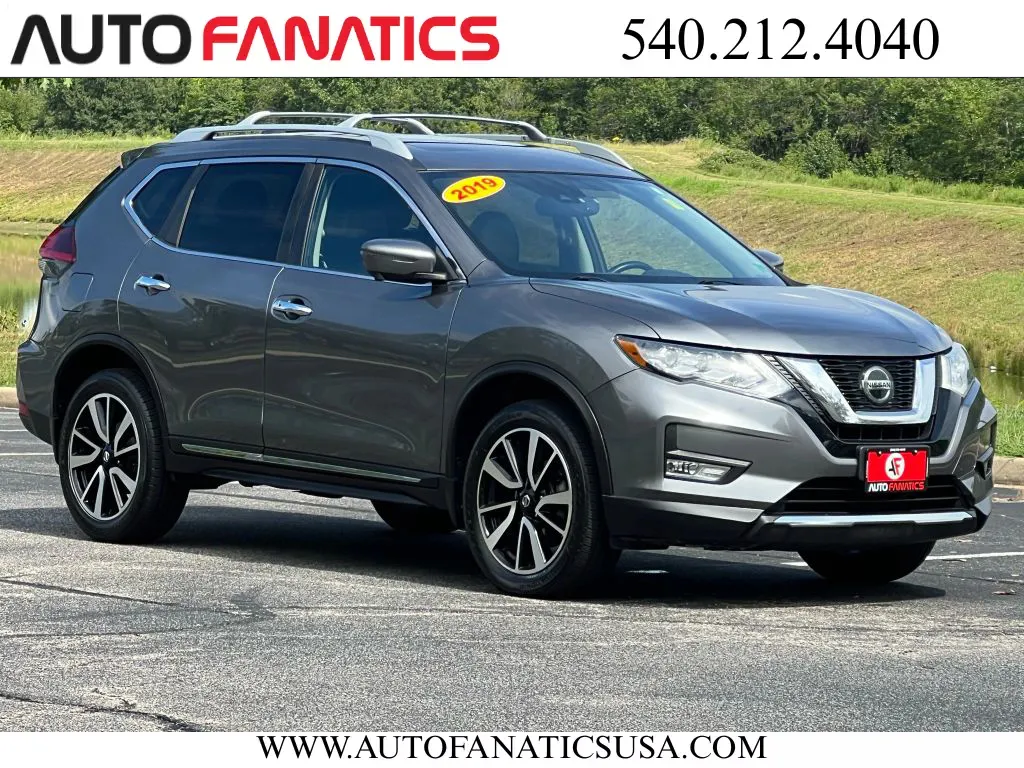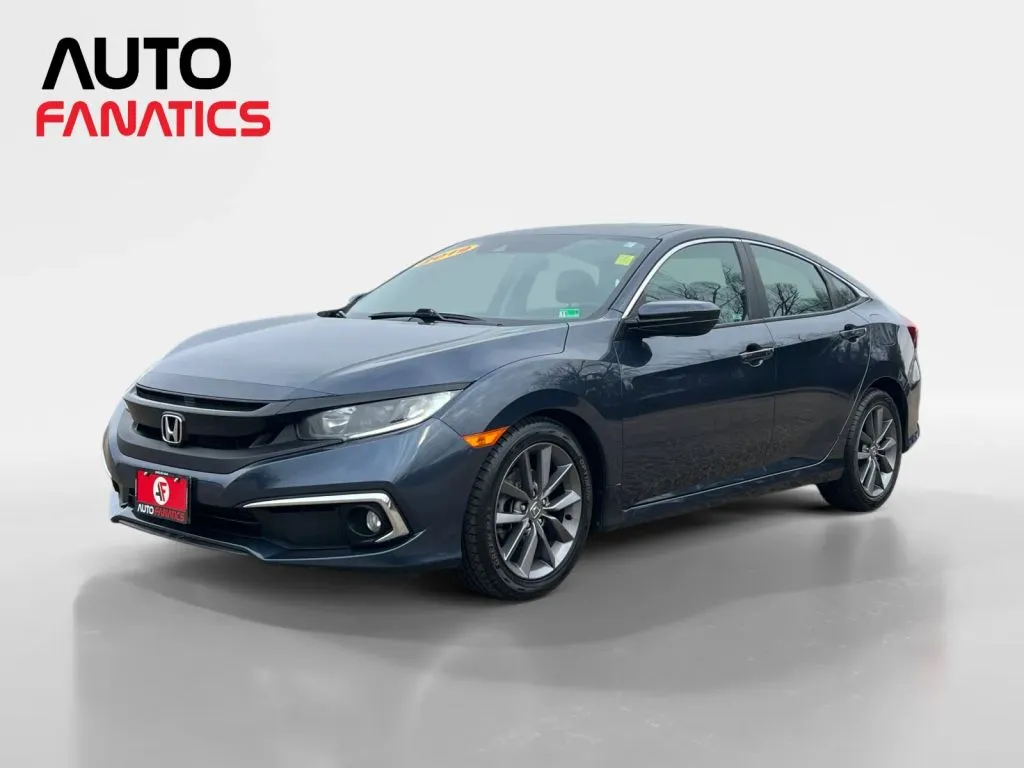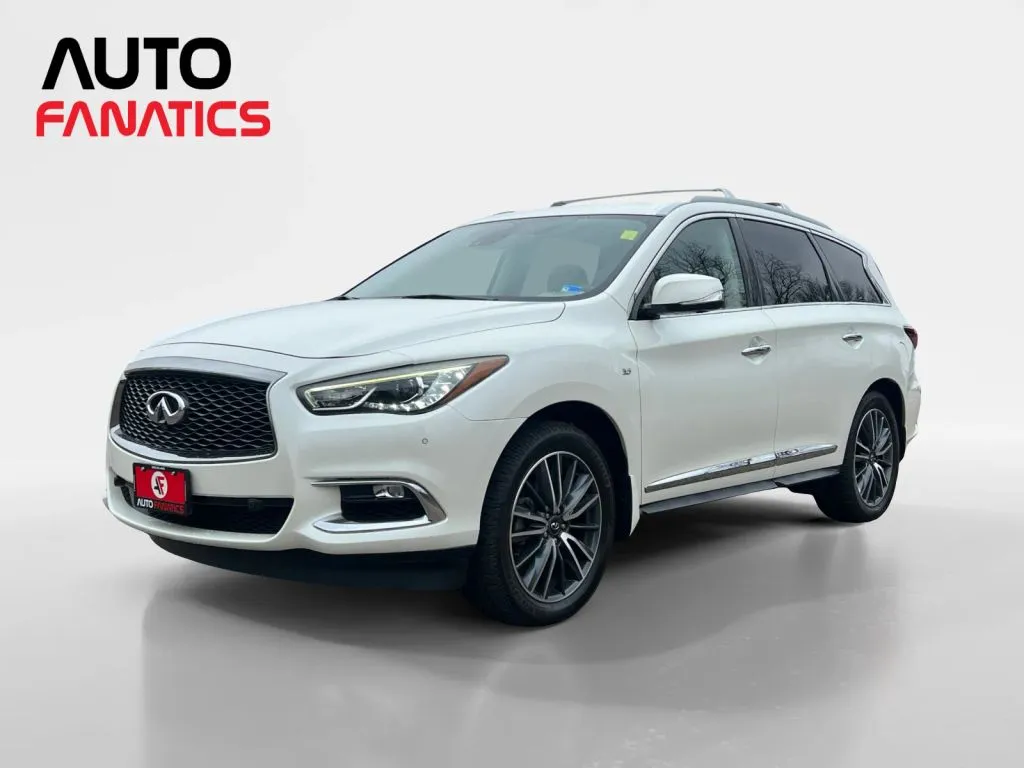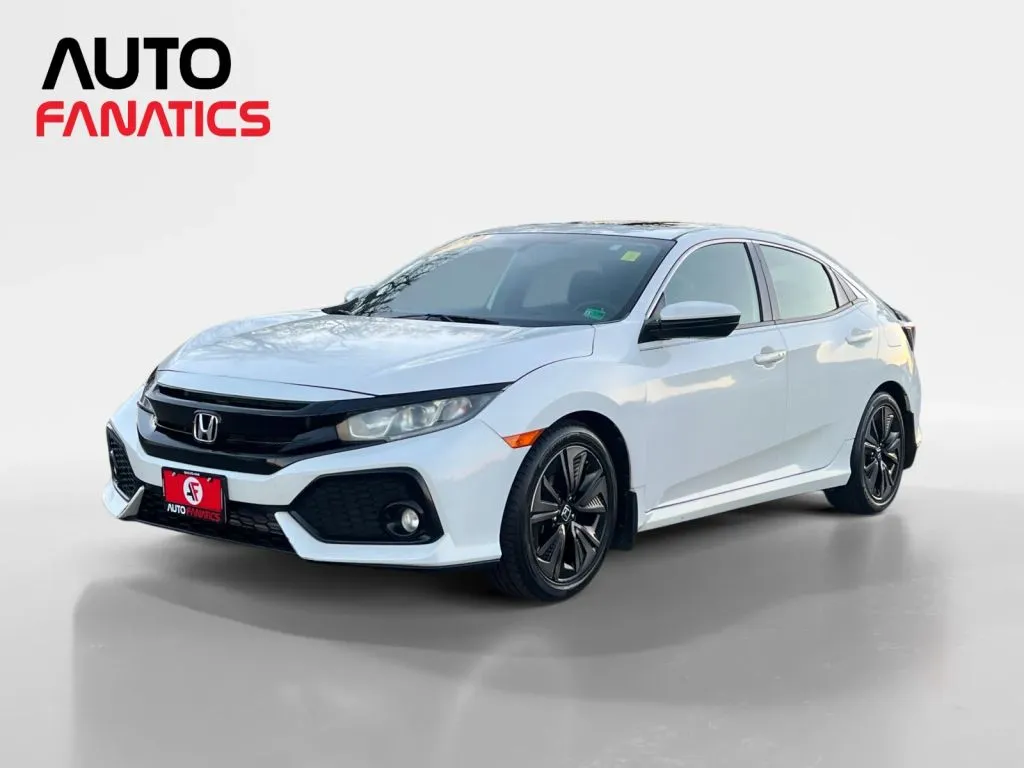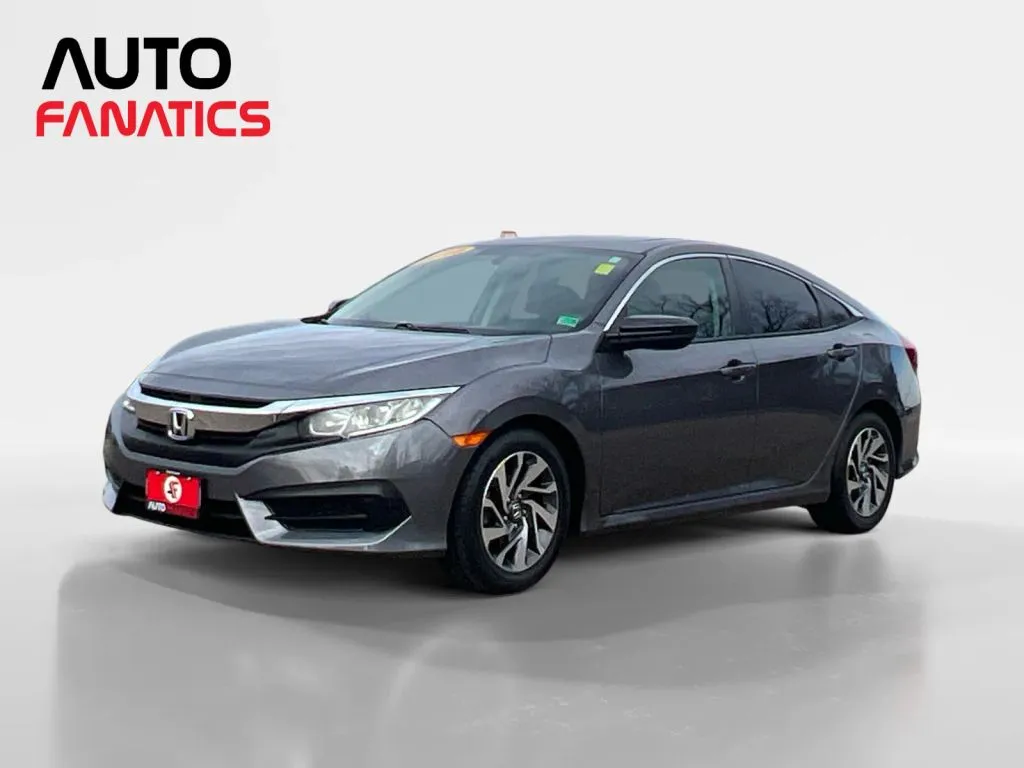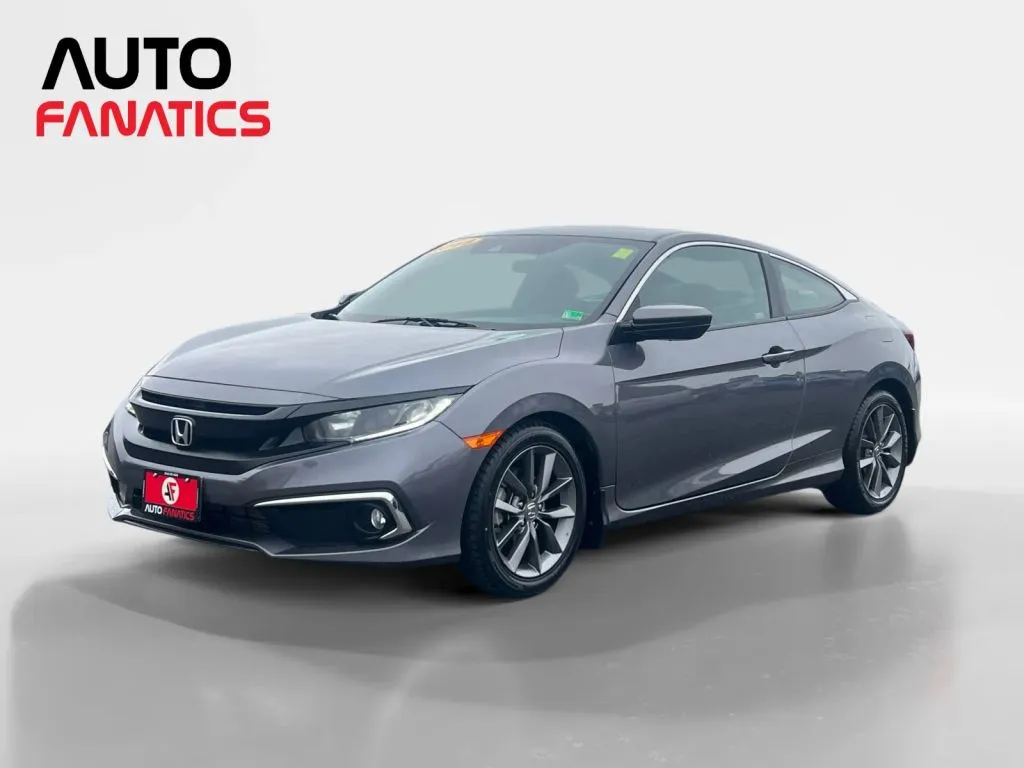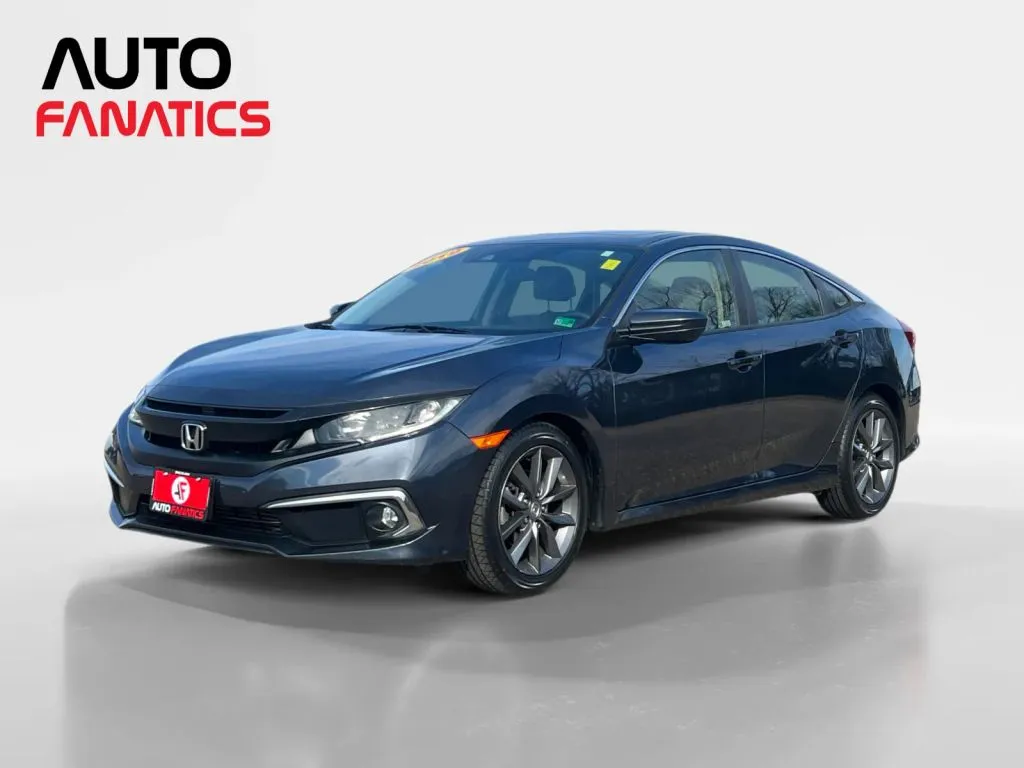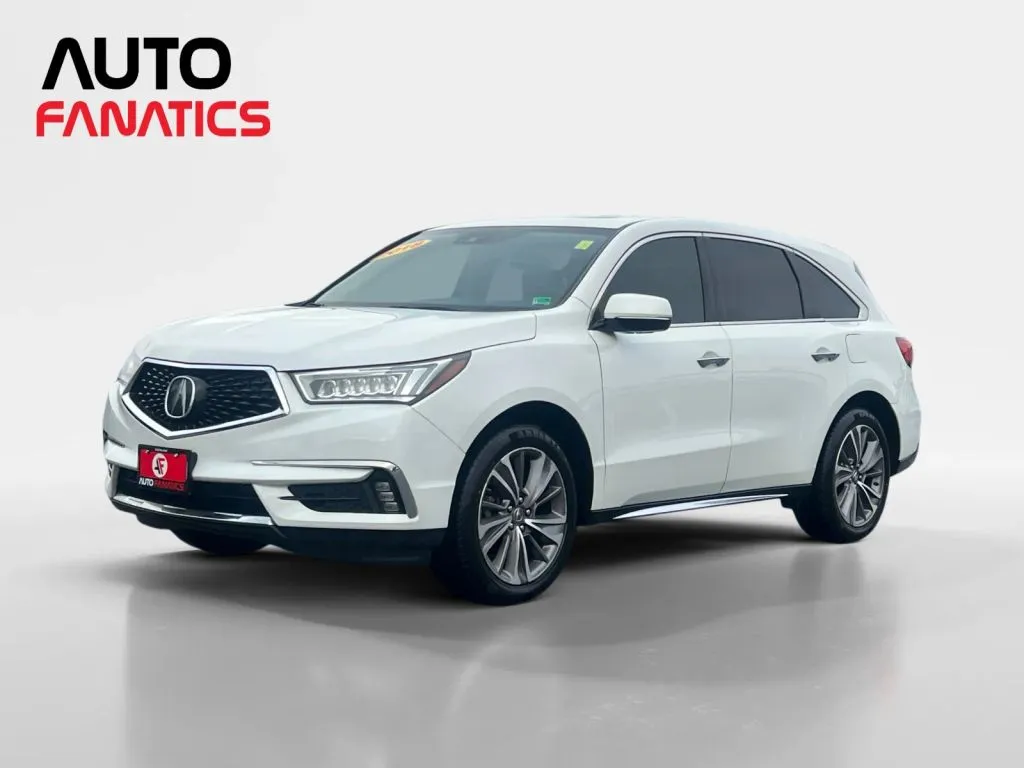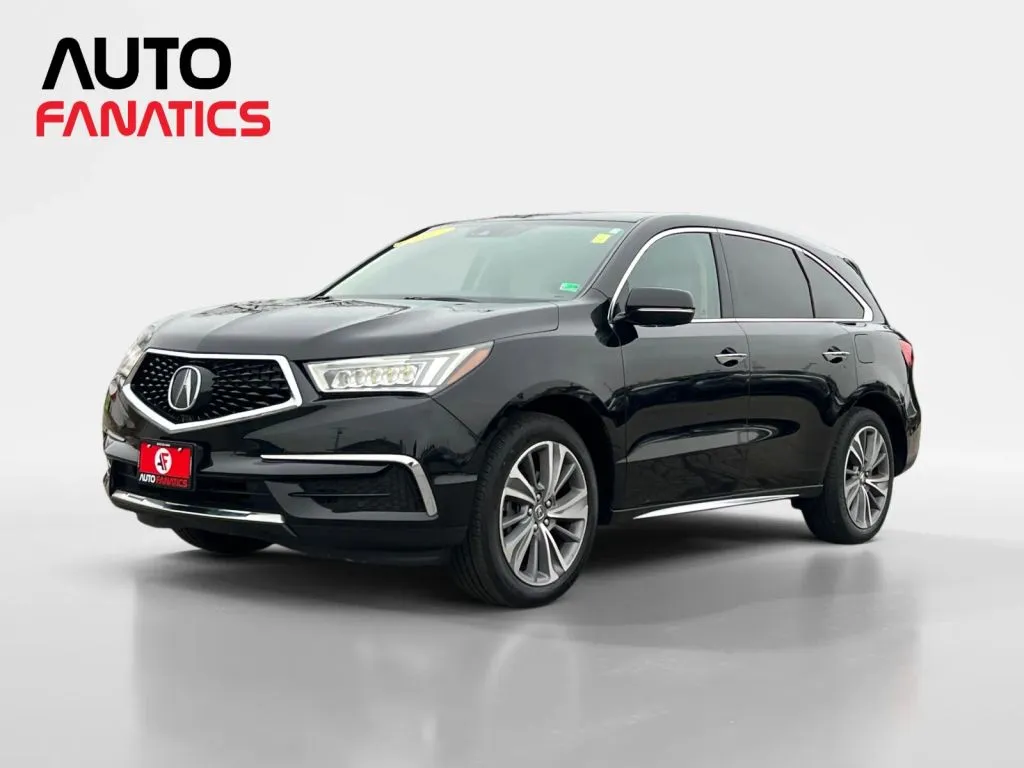Affordable Used Cars in Woodbridge: Your Ultimate Guide
Table of Contents
Affordable Used Cars in Woodbridge: Your Ultimate Guide
The car-buying process has a certain reputation, and it’s not always a good one. That’s why finding a dealership you can trust is so important. A transparent, no-pressure experience can make all the difference, turning a stressful task into an exciting milestone. Your search for affordable used cars in Woodbridge should start with finding a team that listens to your needs and gives you honest answers. With over 450 five-star reviews, we’ve built our reputation on exactly that. This guide will give you the tools to identify a trustworthy partner and walk away from any high-pressure tactics, ensuring you feel great about your purchase.
Key Takeaways
- Protect yourself from surprise repair bills: Your job isn't over when you drive off the lot. Understand your automotive protection plan and get the right insurance coverage to create a financial safety net for any unexpected issues.
- Create a simple maintenance routine now: The key to a long-lasting car is proactive care. Follow your owner's manual for service, find a mechanic you trust before you have an emergency, and keep track of all your service records.
- Keep your car's future value in mind: Make sure your car is properly registered in Virginia right away. Simple habits like keeping the car clean and following your maintenance schedule will make a huge difference when it's time to sell or trade in your vehicle.
Where to Find a Great Used Car in Woodbridge
Finding the right used car in Woodbridge means knowing where to look. The area offers a mix of traditional dealerships, big-name retailers, and online tools to help you find a vehicle that fits your life and budget. Each option has its own vibe and process, so it’s smart to get familiar with them before you start your search. Whether you prioritize a massive selection, a no-haggle price, or a specific certified pre-owned program, there’s a local spot for you. Let’s walk through some of the best places to start your car-buying journey in and around Woodbridge.
Auto Fanatics
While we’re just a short drive away in Fredericksburg, many Woodbridge car shoppers find their way to us for our commitment to a better buying experience. At Auto Fanatics, we focus on transparency and top-tier customer service, which has earned us over 450 five-star customer reviews. We believe buying a car should be exciting, not stressful. That’s why we offer a wide selection of meticulously inspected used cars, trucks, and SUVs without the high-pressure sales tactics. If you value a dealership that listens to your needs and provides clear, honest answers, we think you’ll find the trip worthwhile.
CarMax Woodbridge
CarMax is a popular choice for buyers who prefer a straightforward, no-haggle shopping experience. Their business model is built on fixed pricing, which means the price you see on the sticker is the price you pay. This can take a lot of the stress and uncertainty out of negotiating. They have an extensive inventory of used vehicles at their Woodbridge location, giving you plenty of options to browse in one place. If you want to compare a wide range of makes and models without the back-and-forth on price, CarMax offers a streamlined and predictable process.
Woodbridge Public Auto Auction
If you’re hunting for a bargain and don’t mind doing some extra homework, a public auto auction could be your ticket to a great deal. Auctions can offer vehicles at significantly lower prices than you’d find at a typical dealership. However, it’s a higher-risk environment. You’ll need to research the vehicles ahead of time and be comfortable inspecting them quickly. It’s important to understand that buying a car at auction often means purchasing "as-is," so what you see is what you get. For the savvy and prepared buyer, the potential savings can be substantial.
Malloy Ford
Franchise dealerships like Malloy Ford are excellent places to look for well-maintained used vehicles, especially if you’re interested in a specific brand. They offer a solid selection of used cars, trucks, and SUVs, including Ford’s own certified pre-owned models that come with extra warranty protection. Because they are also a new car dealer, they often have a steady stream of recent trade-ins that are in great condition. They also provide flexible financing options on-site, making it a convenient one-stop shop for finding and funding your next vehicle.
Karen Radley Volkswagen
If you have your eye on a dependable German-engineered car, Karen Radley Volkswagen is a great place to check out. They specialize in VWs but also carry a variety of other makes and models in their used inventory. Their biggest advantage is their certified pre-owned (CPO) program. A certified pre-owned vehicle has undergone a rigorous multi-point inspection and comes with a manufacturer-backed warranty, giving you an extra layer of confidence in your purchase. This is a fantastic option for anyone who wants the value of a used car with the peace of mind of a new one.
Cowles Nissan
Cowles Nissan is another strong local dealership known for its customer-focused approach and diverse inventory. Like other franchise dealers, they offer a mix of used cars from various brands alongside their own certified pre-owned Nissan vehicles. Their CPO program includes benefits like warranty coverage and roadside assistance, which can be a huge plus. With competitive pricing and in-house financing solutions, they work to make the buying process smooth and accessible. It’s a reliable spot to find quality used cars while receiving service from a team that knows its vehicles inside and out.
Online Marketplaces
Don’t forget the power of online marketplaces. Websites like Cars.com and Autotrader are essential tools for modern car shopping. They allow you to filter through thousands of listings from dealerships and private sellers in the Woodbridge area based on your exact criteria—price, make, model, mileage, and more. You can easily compare different vehicles, view photos, and read vehicle history reports from your couch. These platforms give you a comprehensive overview of what’s available, helping you identify the best deals and narrow down your choices before you even leave the house.
How to Find the Best Cars Under $10,000
Finding a reliable and safe car for under $10,000 isn’t just a dream—it’s completely achievable when you know what to look for. The key is to focus on value and reliability over flashy features. This price range is full of hidden gems, from sturdy sedans to versatile SUVs that have been well-maintained. It’s all about shifting your perspective. Instead of focusing on what you can't get, think about the incredible quality you can get by being a smart shopper.
Your goal is to find a vehicle that has been cared for by its previous owners and is being sold by a dealer you can trust. A reputable dealership will have already done a lot of the heavy lifting for you by thoroughly inspecting their vehicles. At Auto Fanatics, we pride ourselves on our transparent process and our selection of meticulously inspected used cars, ensuring you have peace of mind. Being flexible is also a huge advantage. As Kelley Blue Book notes, being open to different models or years can help you find the best car for your money. Let’s break down what to look for in different price brackets and the key details that really matter.
Our Top Picks Under $5,000
Shopping with a budget under $5,000 means you’re looking for a true workhorse—a car that’s proven its reliability over the years. You’ll likely be looking at older models or those with higher mileage, but don’t let that scare you. Cars like the Honda Civic have a legendary reputation for durability and can easily run for well over 200,000 miles with proper care. In this price range, maintenance history is everything. A well-documented service record is more valuable than a low number on the odometer. Focus on finding a car that runs smoothly and has been cared for, and you can find a fantastic deal that will serve you well for years to come.
Solid Choices from $5,000 to $10,000
Once your budget is in the $5,000 to $10,000 range, your options expand significantly. You can start looking at newer models with more modern amenities and lower mileage. This is the sweet spot for finding dependable sedans like the Toyota Camry or Nissan Altima, which are known for their comfort and fuel efficiency. You might even find some fun-to-drive options like a MINI Cooper. These vehicles often offer a great balance of modern safety features, better technology, and proven reliability. When you explore our inventory of quality used cars and SUVs, you’ll see plenty of excellent choices in this price range that deliver incredible value.
Don't Skip These Safety Features
When you’re buying a used car, safety should always be a top priority. While you might not get the latest driver-assist technologies, you can and should expect fundamental safety features. Look for vehicles equipped with anti-lock brakes (ABS), stability control, and a full set of airbags. A backup camera is another feature that became common in this price range and is incredibly helpful. More importantly, buying from a seller you can trust is a safety feature in itself. A dealership with a strong reputation, like ours, is committed to ensuring every vehicle on the lot is safe and sound. You can learn more about our commitment to a transparent, no-pressure experience on our About Us page.
Spot These Red Flags Before You Buy
A sharp eye can save you from a major headache down the road. During your inspection, look for some common red flags. Mismatched paint or uneven gaps between body panels could indicate a past accident. Check for rust, especially on the undercarriage and around the wheel wells. Inside, be wary of musty smells that could signal a water leak or a heavily worn interior that points to neglect. Don’t ignore your ears, either—listen for any strange knocking, grinding, or squealing sounds from the engine or brakes during your test drive. A vehicle history report is your best friend here, as it can reveal reported accidents, title issues, and service history.
What to Know About Mileage
Mileage is one of the first things people look at, but the number itself doesn’t tell the whole story. While lower mileage is generally better, how those miles were accumulated matters just as much. A car with 80,000 highway miles is often in better mechanical shape than one with 50,000 miles of stop-and-go city driving. Highway driving is much easier on the engine, transmission, and brakes. Instead of getting fixated on the number, use it as one part of your evaluation. Consider the car’s overall condition, its maintenance records, and how it feels on the road. A well-maintained, higher-mileage car is often a smarter buy than a neglected, low-mileage one.
Does the Car's Age Really Matter?
It’s the classic debate: is an older car with low miles better than a newer car with high miles? In many cases, the newer car is the better choice. Automotive technology and manufacturing processes improve every year. A newer vehicle will likely have better safety features, more durable components, and improved fuel efficiency compared to a model from a decade ago. As one Reddit user pointed out, a newer, high-mileage car is often in better condition than an older, low-mileage one. Plastic and rubber parts can become brittle with age, regardless of mileage. The best approach is to find a healthy balance between age and mileage that fits your budget and needs.
Shop Smarter with This Game Plan
Walking onto a car lot without a plan can feel overwhelming. But with a little preparation, you can turn the entire experience into a confident and successful search for your next car. Think of it as your personal game plan for finding a great vehicle without the stress. Following these steps will help you focus on what matters, ask the right questions, and drive away in a car you truly love. This approach puts you in the driver’s seat of the buying process, ensuring you make a choice that fits your budget and your lifestyle perfectly.
Use the Right Research Tools
Before you even leave your house, you can do most of the heavy lifting from your couch. Start by browsing a dealership’s online inventory to see what’s available in your price range. You can filter your search to see specific models, like a reliable sedan or one of our family-friendly SUVs. Use online tools like a car loan calculator to estimate your monthly payments. This helps you set a realistic budget and narrows your options, so you can walk into the dealership with a clear idea of what you’re looking for and what you can afford. This simple prep work saves you time and keeps your search focused.
Always Get a Vehicle History Report
A vehicle history report is your best friend when buying a used car. This report, often from a service like CARFAX, tells you the car’s life story: its accident history, service records, number of previous owners, and any reported damages. A transparent dealership will always provide this report for free—it’s a huge green flag that they stand behind the quality of their vehicles. If a seller is hesitant to share this information, you should be hesitant to buy from them. It’s a simple, non-negotiable step that protects you from buying a car with a hidden, problematic past.
Your Pre-Purchase Inspection Checklist
While a vehicle history report tells you about the past, a personal inspection tells you about the present. You don’t have to be a mechanic to spot potential issues. Walk around the car and check for mismatched paint or large gaps between body panels, which could indicate a past accident. Look at the tires for uneven wear. Inside, test all the electronics—from the windows to the radio and A/C. Reputable dealerships perform their own meticulous inspections, ensuring their cars have a history of above-average reliability and are ready for the road.
Make the Most of Your Test Drive
The test drive is where you find out if a car is the right fit for you. Don’t just take a quick spin around the block. Drive it on roads you use every day, including city streets and the highway, to see how it performs. Listen for any unusual rattles or noises from the engine or brakes. Pay attention to how it handles, accelerates, and stops. It’s also interesting to note that a newer car with higher mileage can sometimes be a better choice than an older car with low mileage. Consistent driving can be healthier for a car than letting it sit unused for long periods.
How to Negotiate with Confidence
Negotiation doesn’t have to be intimidating. When you’ve done your research, you can have a confident conversation about price. Independent dealerships often offer more competitive pricing and a wider variety of brands than larger franchise dealers. The key is to know the market value of the car you’re interested in. An even better approach is to find a dealership with a no-pressure sales philosophy, where the focus is on helping you find the right car. Getting pre-qualified for a loan beforehand also puts you in a strong position, as you’ll know exactly what you can spend.
Get Your Paperwork in Order
Once you’ve chosen your car, the final step is the paperwork. Make sure you carefully read everything before you sign, including the bill of sale and any financing agreements. This is also the time to review any optional automotive protection plans that can offer peace of mind down the road. You’ll need your driver’s license and proof of insurance to finalize the purchase. The dealership will handle the title transfer and registration, making the process smooth and straightforward. If you have any questions at all, don’t hesitate to ask. A good dealership will be happy to walk you through every line item to ensure you’re completely comfortable.
How Car Financing Actually Works
Let's talk about financing. For many people, this is the most stressful part of buying a car, but it doesn’t have to be. Understanding how car financing works is the best way to feel confident and in control during your search. Think of it as just another tool in your car-buying toolkit. When you know the language and the options, you can find a payment plan that fits your budget without any surprises. The goal is to drive away in a car you love with a loan you can comfortably manage.
Financing is simply a loan that allows you to purchase a vehicle without paying the full price upfront. You borrow money from a lender—like a bank, credit union, or sometimes the dealership itself—and agree to pay it back in monthly installments over a set period. This agreement includes interest, which is the cost of borrowing the money. At Auto Fanatics, we believe in making this process as clear as possible. We work with a variety of trusted lenders to find competitive rates, and you can even get approved online to see where you stand before you even visit us. Knowing your options ahead of time is the key to a smooth, pressure-free experience.
What is a Traditional Auto Loan?
A traditional auto loan is the most common type of financing. It’s a straightforward loan offered by a bank or credit union. You borrow a set amount of money to purchase one of our used cars, and then you repay that loan, plus interest, in fixed monthly payments over a specific term, usually between three to six years. It’s a predictable and reliable way to finance a vehicle. The interest rate you get depends on your credit score, the loan term, and the vehicle's age. This is a great option for buyers with a solid credit history who want a simple, no-fuss financing solution.
Explaining "Buy Here Pay Here"
You might see some dealerships advertise "Buy Here Pay Here" (BHPH) financing. This means the dealership itself is lending you the money, and you make your payments directly to them instead of a bank. This option is often geared toward buyers who have trouble getting approved for a traditional loan due to poor or no credit history. While it can be a path to vehicle ownership for some, it’s important to read the fine print, as BHPH loans can sometimes come with higher interest rates. Our team at Auto Fanatics focuses on transparency and can help you understand all your options.
The Advantages of a Credit Union Loan
Don’t overlook your local credit union when shopping for a loan. Because credit unions are member-owned, not-for-profit institutions, they often pass their earnings back to members in the form of lower interest rates and more flexible loan terms. They’re known for their personalized customer service and may be more willing to work with you, even if your credit isn't perfect. It’s always a good idea to check with a credit union to see what rates they can offer. You can use a car loan calculator to compare their offer with others and see how it impacts your monthly payment.
Why You Should Get Pre-qualified
Getting pre-qualified for a car loan is one of the smartest moves you can make before you start shopping. It’s a simple process where a lender gives you an estimate of how much you can borrow and at what interest rate, based on a soft credit check. This does two amazing things: first, it tells you exactly what you can afford, so you can shop with a realistic budget. Second, it gives you negotiating power. When you walk into a dealership with a pre-qualification letter, you’re seen as a serious buyer. You can get pre-qualified with CapitalOne right on our website to start the process.
Look Out for These Hidden Costs
The sticker price isn't the final price. When you're creating your budget, remember to account for additional costs that can add up. These typically include sales tax, title and registration fees, and sometimes a dealer documentation fee, which covers the cost of preparing all the paperwork. Being aware of these expenses from the start prevents any last-minute surprises when you’re ready to sign. We also recommend considering automotive protection plans, which can cover unexpected repairs down the road and give you valuable peace of mind.
How to Plan Your Down Payment
A down payment is the cash you pay upfront for your car, and it directly impacts your loan. The more you put down, the less you have to borrow. This results in a lower monthly payment and less interest paid over the life of the loan. A common guideline is to aim for a down payment of at least 20% of the vehicle's purchase price. If you have a vehicle to trade in, that’s a fantastic way to cover some or all of your down payment. You can get a trade-in value for your current car online to see how much you could put toward your next one.
Protect Your Car After You Buy It
Driving off the lot in your new-to-you car is an amazing feeling. The search is over, the paperwork is signed, and the keys are finally in your hand. But your journey as a car owner is just beginning. What you do in the first few weeks and months after your purchase is just as important as the research you did beforehand. Taking a few key steps right away will protect your investment, keep your car running smoothly for years to come, and save you from future headaches and unexpected costs. Think of it as setting you and your car up for a long and happy relationship.
This isn't about complicated mechanical work; it's about smart, simple habits. We'll walk through everything you need to do to keep your vehicle in top shape and protect yourself financially. We’ll cover understanding your warranty options so you’re not caught off guard by repair bills, and we'll clarify what insurance you really need to be fully protected on the road. We’ll also talk about creating a simple maintenance schedule that prevents small issues from becoming big problems, finding a trustworthy mechanic before you’re in a jam, and navigating the process of getting your car registered here in Virginia. Finally, we’ll share some tips on how to keep your car’s resale value high, so you get the most back when it’s time to upgrade.
Understand Your Warranty Options
Even the most thoroughly inspected used car can have unexpected issues. This is where a warranty or vehicle protection plan becomes your financial safety net. When you buy from a reputable dealership, you often have options that go beyond a standard "as-is" sale. These plans can cover major repairs to the engine, transmission, and other essential components, saving you from a massive, unplanned expense. Before you sign, make sure you understand what’s covered, the length of the term, and what your deductible might be. At Auto Fanatics, we offer a variety of automotive protection plans because we want you to drive away with complete confidence and peace of mind.
What Insurance Do You Really Need?
Car insurance is non-negotiable, but the right coverage depends on your specific situation. Virginia law requires all drivers to have at least liability coverage, which pays for damages you cause to others in an accident. However, if you financed your car, your lender will almost certainly require you to carry collision and comprehensive coverage, too. Collision pays for damage to your car from an accident, while comprehensive covers non-collision events like theft, vandalism, or storm damage. It’s always a good idea to review Virginia’s insurance requirements and chat with an agent to find a policy that fully protects your new asset without breaking the bank.
Create a Simple Maintenance Schedule
The secret to a long-lasting car is consistent, proactive care. Don’t wait for a strange noise or a dashboard warning light to appear. Your car’s owner’s manual is your best friend here—it contains the manufacturer's recommended service schedule for things like oil changes, tire rotations, and fluid checks. Sticking to this plan is the easiest way to keep your car running reliably and efficiently. Regular maintenance not only prevents small issues from turning into major, expensive repairs but also keeps your car safer and helps it hold its value. You can track this in a simple notebook or a phone app to create a service history, which is a huge plus when you eventually sell.
Find a Mechanic You Can Trust
Sooner or later, your car will need a professional's touch, and the time to find a great mechanic is before you actually need one. Don't wait for an emergency. Start by asking friends, family, and coworkers in the Woodbridge area for their recommendations. You can also check online reviews for local shops, looking for consistent positive feedback. A key indicator of quality is a shop with technicians who have ASE certifications, which is the industry standard for professional competence. A trustworthy mechanic will be transparent about costs, explain repairs clearly, and help you prioritize what needs to be done now versus what can wait.
How to Register Your Car in Virginia
Making your ownership official is a crucial final step. To register your car in Virginia, you'll need to visit a DMV Customer Service Center with a few key documents. This typically includes the car’s title (signed over to you by the seller), proof of Virginia auto insurance, and a valid safety inspection certificate. You’ll also need to pay the registration fees and the state's sales and use tax. The process is straightforward, but it helps to have all your paperwork in order before you go. The Virginia DMV website has a complete checklist to guide you. When you buy from a dealership like Auto Fanatics, we handle this paperwork to make the process as seamless as possible for you.
Keep Your Car's Resale Value High
Even if you plan to drive your car for many years, it’s smart to think about its future resale value from day one. A car that’s been well cared for will always command a better price when it's time to sell or trade it in. The best way to do this is by following your maintenance schedule and keeping a detailed record of all the work you’ve had done. Simple habits also make a big difference: keep the interior and exterior clean, fix small dings or scratches promptly, and avoid smoking in the car. These small efforts will pay off, helping you get a better offer. You can always get a baseline idea of what your vehicle is worth by checking its trade-in value online.
Related Articles
- Top 5 Used Car Buying Tips in Fredericksburg, VA | Auto Fanatics
- Best Used Cars in Fredericksburg, VA | Auto Fanatics
- Your Guide to Shopping for the Perfect Used SUV
- 64 used cars, SUVs and vans for sale in Fredericksburg, VA | Auto Fanatics
Frequently Asked Questions
What’s more important when buying a used car: its age or its mileage? This is a classic question, and the answer isn't always simple. While low mileage seems like the obvious winner, a newer car with higher mileage is often the smarter buy. Automotive technology, safety features, and manufacturing materials improve every year. A five-year-old car with 80,000 highway miles may be in better shape than a ten-year-old car with 50,000 city miles because highway driving is much gentler on the engine and transmission. The best approach is to look at the whole picture: consider the car's overall condition and its maintenance history, not just one number.
Is it better to get financing from the dealership or my own bank? You should explore both options to find the best deal. Getting pre-qualified for a loan from your own bank or a local credit union before you start shopping is a powerful move. It gives you a clear budget to work with and a competitive interest rate to use as a benchmark. Once you've chosen a car, you can see if the dealership's finance team can offer you a better rate. Having a pre-qualification in hand gives you negotiating power and ensures you get the most favorable terms available.
I'm on a tight budget. Can I really find a reliable car for under $10,000? Absolutely. Finding a great car in this price range is all about focusing on reliability and condition over flashy features. You can find plenty of dependable sedans and even some smaller SUVs that have been well-maintained by previous owners. The key is to prioritize a clean vehicle history report and a thorough inspection from a dealership you trust. Being flexible on the make or model can also open up some fantastic options that deliver incredible value and will serve you well for years to come.
What is the single most important thing I should do before buying any used car? Always get a vehicle history report. This is a non-negotiable step that gives you a detailed look into the car's past, including any reported accidents, title issues, or service records. A transparent dealership will gladly provide this for you. This report is your best defense against buying a car with hidden problems that could lead to expensive repairs down the road. It empowers you to make an informed decision and gives you peace of mind about your purchase.
I just bought my car! What are the first things I should do? Congratulations! The first thing to do is call your insurance agent to make sure your new car is officially added to your policy before you drive it much. Next, take some time to sit down with your owner's manual and any warranty or protection plan documents you received. Understand what's covered and what the recommended maintenance schedule looks like. Finally, plan for your first oil change or check-up. Starting a consistent maintenance routine from day one is the best way to protect your investment and ensure your car runs smoothly.
Author(s)

Ray Mehta
CEO AND FOUNDERRay Mehta is the CEO and Founder of Auto Fanatics, a leading independent dealership in Fredericksburg, Virginia. With over 15 years of experience spanning franchise and independent dealerships, Ray has guided management teams that have sold 50,000+ vehicles, giving him deep expertise in automotive retail, financing, and customer experience.
Widely regarded as a subject matter expert in dealership operations and digital retailing, Ray frequently shares insights through blogs and thought leadership articles, where he explores industry trends, credit challenges, and the future of car buying.
At Auto Fanatics, his vision is to create a transparent, customer-first car buying experience, blending technology with trust to redefine how people purchase vehicles.

JOHN TAHHAN
GENERAL MANAGERJohn Tahhan is the General Manager of Auto Fanatics, responsible for overseeing daily operations and ensuring every customer enjoys a smooth, transparent car-buying experience. With more than a decade of automotive retail experience, John has honed his skills in sales management, financing programs, and inventory strategy, helping Auto Fanatics grow while maintaining its customer-first values.
Known for his hands-on leadership style, John works closely with his team to create processes that drive efficiency and long-term satisfaction. His approachable personality and focus on integrity have made him a trusted leader among staff and customers alike.
Outside the dealership, John enjoys riding bikes, a passion that reflects his energy, focus, and love for the open road.

